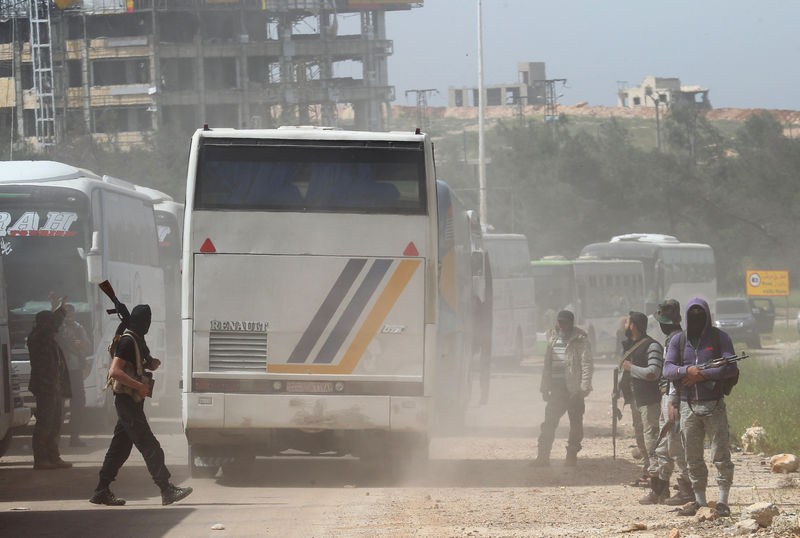BEIRUT (Reuters) - The evacuation of Syrian civilians and fighters from four besieged towns, part of a swap deal between the warring sides, resumed on Friday after a 48-hour halt, state media and a war monitoring group said.
More than 35 busloads of civilians and pro-government fighters from the towns of al-Foua and Kefraya in Idlib province arrived in Aleppo city, which is under government control, the war monitor said.
Thousands of evacuees from the two rebel-besieged Shi'ite towns had been stuck at a staging area outside Aleppo, where a bomb attack on an evacuation convoy killed scores of people last week.
In exchange, ten buses carrying rebels and their relatives from Zabadani left a second nearby transit point to cross into rebel territory, state-owned Ikhbariyah channel said.
The towns of Zabadani and Madaya, which had long been under siege by pro-government forces near Damascus, came under state rule this week after Sunni rebels and civilians were evacuated.
The Syrian Observatory for Human Rights said the 48-hour suspension was due to rebel demands for the government to free 750 prisoners as part of the agreement.
The Britain-based war monitor said it remained unclear if authorities had released any prisoners as the reciprocal evacuations resumed in the morning.
On Saturday, a bomb blast hit a convoy carrying evacuees from al-Foua and Kefraya killing at least 126 people, including more than 60 children, who were waiting on Aleppo's outskirts.
Thousands of Syrians have been evacuated mostly out of besieged rebel areas in recent months, under deals between President Bashar al-Assad's government and rebel groups fighting for six years to unseat him.
U.N. Syria humanitarian adviser Jan Egeland said that there had been more evacuation deals this year than in previous years, but that they appeared driven more by military priorities than humanitarian concerns.
"They seem to follow a military logic, they do not seem to put the civilians at the heart of the agreement," he told reporters in Geneva on Thursday.
The United Nations was not involved in the evacuation of the four towns, Egeland said. He added it was misleading to consider them voluntary evacuations when the towns had been besieged for years.

"Besiegement should end by being lifted," he said, "not by places being emptied from people."